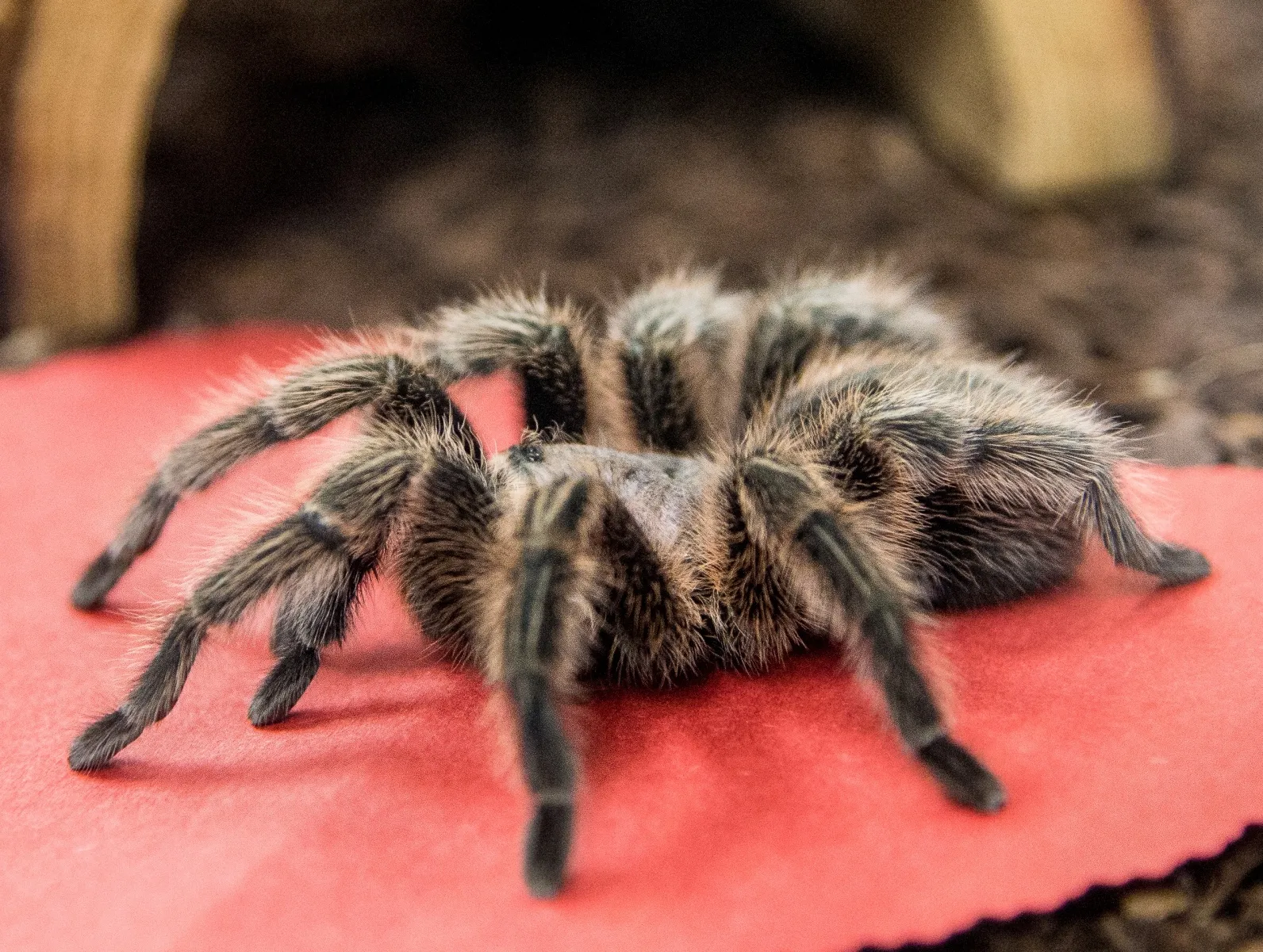What is a Tarantula Career
Embarking on a career involving tarantulas can be a fascinating journey for individuals passionate about these unique creatures. Tarantula careers encompass a variety of roles, each offering distinct opportunities to work with, study, and care for these fascinating arachnids. From breeding and care to research and education, the field provides diverse paths for enthusiasts to engage with tarantulas professionally. These careers often require a blend of scientific knowledge, practical skills, and a genuine love for these eight-legged animals. Whether you’re captivated by their biology, fascinated by their behavior, or intrigued by their role in ecosystems, a tarantula career could be a rewarding and fulfilling option. These roles are often found in zoos, universities, private businesses, and conservation organizations. The growing interest in exotic pets and the need for scientific study contribute to the demand for skilled professionals.
Common Tarantula Career Paths
The world of tarantulas offers a surprisingly diverse range of career paths for those interested in working with these captivating creatures. These careers go beyond simply owning a tarantula as a pet, requiring specialized knowledge and skills. Several common career paths provide opportunities to engage with tarantulas professionally. These roles often require a deep understanding of tarantula biology, behavior, and care, as well as dedication and a passion for these amazing creatures. The following are some of the most prevalent career options.
Tarantula Breeder

Tarantula breeders play a crucial role in the hobby and pet trade, responsible for the propagation of various tarantula species. These professionals maintain breeding colonies, manage mating processes, and ensure the health and well-being of both adult tarantulas and their offspring. They are essential for providing tarantulas to pet stores, other breeders, and enthusiasts, ensuring a sustainable supply of these fascinating creatures. This career requires patience, meticulous attention to detail, and a deep understanding of tarantula reproduction. Breeders also often work with different species, gaining expertise in the unique requirements of each. This includes everything from setting up appropriate enclosures to understanding the specific environmental needs that promote successful breeding cycles, guaranteeing the long-term health and availability of tarantulas in the hobby and the pet trade.
Responsibilities of a Tarantula Breeder
Tarantula breeders have several key responsibilities that are vital for their success. The primary duties involve maintaining the health and welfare of tarantulas, which includes providing proper nutrition, suitable enclosures, and optimal environmental conditions. This also encompasses monitoring the tarantulas for any signs of illness or distress. The breeders must meticulously manage the breeding process, from pairing adult tarantulas to caring for egg sacs and spiderlings. This requires careful observation, documentation, and often, the use of specialized equipment. They also must maintain detailed records of breeding programs, including lineages, mating dates, and offspring survival rates. Moreover, many breeders are responsible for the sale of tarantulas, which includes providing information to buyers and ensuring responsible pet ownership.
Necessary Skills for Tarantula Breeding
To excel in tarantula breeding, a variety of skills are essential. A profound understanding of tarantula biology and behavior is crucial. This includes knowledge of the specific needs of different species and an understanding of their life cycles. Exceptional observation skills are also critical, as breeders must be able to detect subtle changes in tarantula health and behavior. Practical skills such as enclosure setup, feeding techniques, and the ability to handle tarantulas safely are also necessary. Furthermore, breeders should possess strong organizational skills to maintain detailed records and manage breeding programs efficiently. Patience and attention to detail are also essential, as breeding tarantulas can be a time-consuming process. Finally, effective communication skills can be valuable, especially when interacting with customers and providing guidance on tarantula care.
Tarantula Care Specialist

Tarantula care specialists are professionals dedicated to the well-being of tarantulas. They work in various settings, including zoos, wildlife sanctuaries, and private collections. Their primary responsibility is to ensure that tarantulas receive the best possible care, encompassing everything from providing appropriate habitats to monitoring their health. They are often experts in tarantula husbandry. They also provide public education on these creatures. Care specialists are essential for promoting responsible pet ownership and contributing to the conservation of tarantula species. They play an important role in the ethical treatment and welfare of these fascinating creatures.
Tasks of a Tarantula Care Specialist
The daily tasks of a tarantula care specialist are varied and essential. This begins with maintaining clean and appropriately designed enclosures, ensuring that each tarantula has a safe and enriching environment. They meticulously monitor environmental conditions, including temperature and humidity, which are crucial for the tarantulas’ health. They also prepare and provide appropriate meals. Another important task is to observe the tarantulas for any signs of illness or stress, taking prompt action if necessary. They may also administer medications or other treatments under the guidance of a veterinarian. Many care specialists also participate in educational programs, answering questions from the public and promoting appreciation for tarantulas.
Required Qualifications for Care Specialists
The qualifications for a tarantula care specialist typically include a combination of education, experience, and skills. While a formal degree in zoology, biology, or a related field is often preferred, it is not always required. Hands-on experience working with tarantulas or other exotic animals is highly valuable, often gained through internships or volunteer work. Extensive knowledge of tarantula biology, behavior, and husbandry is essential. This includes a deep understanding of their needs and how to meet them. Excellent observation skills and the ability to recognize signs of illness or distress are also required. Moreover, a strong commitment to animal welfare and a passion for tarantulas are fundamental to success in this career. Finally, a willingness to continue learning and stay updated on the latest research and best practices in tarantula care is beneficial.
Tarantula Researcher

Tarantula researchers are dedicated to expanding our understanding of these creatures. They conduct scientific studies to investigate their biology, behavior, ecology, and evolution. These researchers work in academic institutions, research facilities, and occasionally, in the field. Their research contributes to a broader understanding of the natural world. Their work can involve everything from studying tarantula venom to examining their role in ecosystems. Tarantula researchers play a critical role in advancing knowledge about tarantulas, which helps to inform conservation efforts and educate the public about their importance. They also contribute to the development of new scientific discoveries.
Research Activities of a Tarantula Researcher
The activities of a tarantula researcher are multifaceted and varied, depending on their specific area of study. They typically design and conduct experiments, collect data, and analyze the results. These activities can involve field work, such as observing tarantulas in their natural habitats. This may also involve lab work, such as examining tarantula anatomy under a microscope or conducting behavioral studies in controlled environments. They also write scientific publications and present their findings at conferences. A large part of their job involves staying up-to-date on the latest research, and collaborating with other scientists. Researchers also contribute to educational outreach, sharing their knowledge with the public. Their dedication leads to a deeper understanding of tarantulas and the critical role they play in ecosystems.
Educational Requirements for Researchers
The educational requirements for a tarantula researcher are typically rigorous, reflecting the advanced nature of scientific research. A bachelor’s degree in biology, zoology, or a related field is usually the minimum requirement. However, most researchers pursue a master’s or doctoral degree to gain more specialized knowledge and skills. A master’s degree often enables researchers to lead research projects and conduct independent research. A doctoral degree is often necessary for those seeking to work in academia or lead research programs. In addition to formal education, researchers must have strong analytical and critical thinking skills. It’s also imperative to have excellent writing and communication skills to publish research findings. Practical experience with research methods, data analysis, and scientific writing is also considered invaluable.
How to Start Your Tarantula Career

Embarking on a career involving tarantulas can be an exciting journey, requiring dedication and preparation. Whether you are interested in breeding, care, or research, there are several key steps you can take to get started. This journey often begins with a strong foundation in education and practical experience. These steps will not only enhance your knowledge but also increase your chances of success. With careful planning and perseverance, you can turn your passion for these amazing creatures into a fulfilling career.
Educational Foundation
Establishing a strong educational foundation is crucial for success in any tarantula career. Start by pursuing relevant coursework in biology, zoology, or related fields. This will provide you with a broad understanding of animal biology, behavior, and ecology. Consider taking specialized courses in invertebrate zoology or arachnology. This will provide a deeper understanding of tarantula anatomy, physiology, and taxonomy. Reading scientific literature, books, and articles on tarantulas is also vital. This helps you stay updated on the latest research and advancements. Seek out educational opportunities, such as workshops and seminars, to enhance your knowledge and skills. Combining theoretical knowledge with hands-on experience is the most effective approach for building a strong foundation.
Gaining Practical Experience
Gaining practical experience is essential to complement your educational foundation. Volunteering or interning at zoos, wildlife sanctuaries, or research facilities offers invaluable hands-on experience with tarantulas. This will allow you to learn about their care, handling, and behavior. Consider working with experienced tarantula breeders to learn about breeding practices, husbandry, and the pet trade. Start your own small tarantula collection and learn about their individual needs. This experience helps you gain practical knowledge of different species. Networking with professionals in the field, attending conferences, and joining relevant organizations, such as arachnid societies, can offer valuable opportunities to learn and grow.
Networking and Community Engagement

Building a professional network and engaging with the tarantula community is an excellent way to advance your career. Join online forums, social media groups, and arachnid societies to connect with other enthusiasts and professionals. Attend conferences, workshops, and seminars to learn about current research and best practices. These are great opportunities to meet experts in the field. Networking allows you to learn about job openings and career opportunities. Consider volunteering or assisting with research projects to gain experience and build connections. Sharing your knowledge and experiences through presentations or articles will help you establish yourself as an expert. By actively engaging with the community, you can build valuable relationships that will support your career goals.
Essential Skills for Tarantula Professionals
Several essential skills are crucial for success in a tarantula-related career. These skills are relevant across different roles, whether you are a breeder, caretaker, or researcher. The development of these skills is essential for a rewarding and successful career. Strong observational skills are at the top of the list, enabling you to notice subtle changes in tarantula behavior and health. Practical handling and safety protocols are essential. You must also develop effective communication to interact with colleagues, clients, or the public, and knowledge of tarantula species is essential.
Knowledge of Tarantula Species
A comprehensive understanding of various tarantula species is fundamental for anyone pursuing a career in this field. You need to know about the different species, their unique characteristics, and specific care requirements. You must familiarize yourself with species-specific behaviors, habitat preferences, and dietary needs. Knowledge of taxonomy is also very important. This will allow you to understand how different tarantulas are related and classified. Continuous learning and staying updated on new research and species discoveries are also vital. By developing a solid understanding of tarantula species, you can provide the best care and make informed decisions. This is the foundation of any successful tarantula-related career.
Handling and Safety Protocols

Adhering to proper handling and safety protocols is paramount when working with tarantulas. This will minimize the risk of injury to both the tarantula and the handler. Always prioritize the safety of both you and the animal. Handle tarantulas only when necessary and with utmost care. This involves using appropriate tools and techniques to minimize stress on the tarantula. Learn about the potential hazards associated with tarantulas, such as bites and urticating hairs. Make sure you’re aware of the specific dangers associated with different species. Always use personal protective equipment, such as gloves and eye protection, when handling or working with tarantulas. Keep a first-aid kit nearby in case of accidents. By following these safety protocols, you can ensure a safe and responsible work environment.
Effective Communication
Effective communication skills are crucial for those pursuing a tarantula-related career. Regardless of your role, the ability to communicate clearly and effectively is very important. You must be able to share your knowledge with other professionals, clients, or the public. Develop strong verbal communication skills. Be able to explain complex information about tarantulas in a way that is easy to understand. Effective writing skills are also essential. Many professions require writing reports, articles, or educational materials. Good communication skills also include being able to listen actively to the needs and concerns of others. Whether you’re explaining care tips to a client or presenting research findings, the ability to communicate effectively is key to success in this field. By refining these skills, you can build relationships, educate others, and contribute to the field.
The Future of Tarantula Careers
The future of tarantula careers looks promising. With the growing interest in exotic pets, the demand for tarantula breeders, care specialists, and related professionals is expected to grow. As public awareness of tarantulas increases, more opportunities for education and outreach will emerge. Research into tarantula biology, behavior, and venom will continue to advance, creating new roles for scientists and researchers. The field also offers the potential for specialization and innovation. Opportunities may arise in areas such as conservation, veterinary care, and the development of new technologies for tarantula care and study. For those passionate about these fascinating creatures, a career in the tarantula field can be both fulfilling and rewarding. It provides unique opportunities to work with, learn about, and contribute to the conservation of these amazing animals.
